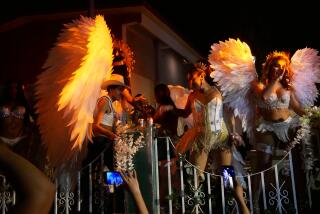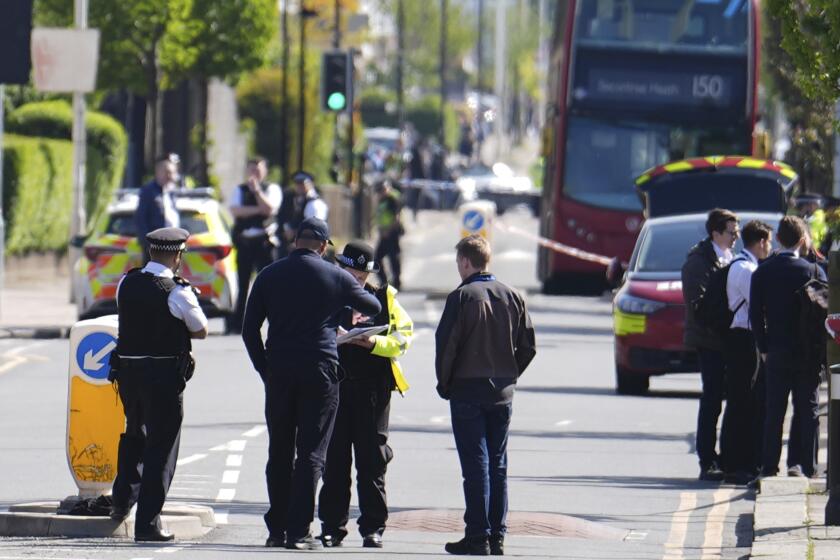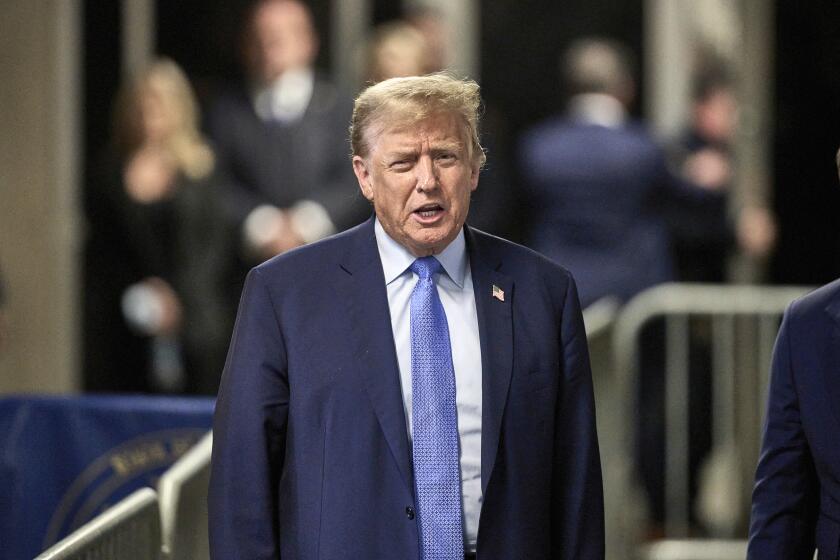Students Rally in Shanghai for Reforms, Rights
More than 30,000 defiant Chinese students demanding freedom, democracy and human rights jammed the streets of Shanghai on Saturday, and thousands of them settled in for a second all-night vigil in a carnival atmosphere tinged with nervousness.
The first night’s sit-in was disrupted at dawn Saturday by a police raid on the 2,000 to 3,000 students in downtown People’s Square. Unconfirmed reports said between 80 and 300 students were arrested, and that several others were beaten by officers. A Shanghai official denied that any students were beaten.
Hours later, in the biggest unauthorized demonstration since a 1976 anti-government protest in Peking, between 30,000 and 40,000 students from at least seven Shanghai universities marched Saturday on People’s Square and nearby City Hall with banners reading “Long Live Democracy” and “Give Us Freedom.”
Hundreds of police lined rooftops and surrounded both protest sites, which are joined by a nine-block section of busy Nanjing Road. No arrests were reported.
Students Crowd Square
After nightfall, an estimated 10,000 students crowded the square, while up to 30,000 circulated along Nanjing Road and in front of City Hall on Shanghai’s historic riverside Bund.
An outnumbered police guard looked on as thousands of students sat packed together on the street, some singing songs or sharing bread and chocolates bought by their leaders with donations from well-wishers.
One businessman, amazed at the display of student solidarity, told a reporter: “I admire their courage. I’ve not seen this in Shanghai for a long time.”
But despite their bold actions on a day of nonstop demonstrating for democratic reforms, most students and onlookers refused to give their names, saying that they feared repercussions.
The protests in Shanghai, China’s largest city, began Thursday and have mushroomed into the most spectacular show yet of student unrest on campuses across China this month.
The demonstrations, from Peking and Xian in the north to Wuhan on the Yangtze River and Kunming in the southwest, have all turned into student calls for democratic reform, although many began as expressions of dissatisfaction on local issues such as quality of college food.
Leaders Stress Reform
The students are seizing on a spate of recent statements by Deng Xiaoping and other leaders stressing the need for democratic reforms aimed at diminishing the pervasive role of the Communist Party, encouraging free debate and introducing elections to some government posts.
Deng’s idea is that a limited dose of democracy, more debate and less party interference in the work of management would make China’s backward economy function better.
These ideas go too far for Deng’s conservative opponents, but not far enough for some of the students. At Saturday’s rally, students demanded an acceleration of democratic reforms and greater press freedom to cover events such as the student protests.
The official New China News Agency broke official media silence Saturday on the student rallies, quoting a senior Education Ministry official as saying the government supports democracy and demonstrators will not be suppressed as long as they obey the law.
“It is understandable that college students should be concerned about the restructuring of the political system and hope to express their views on these issues,” the education official said.
‘Democracy Wall’
The last comparable wave of demonstrations for political reform was in the late 1970s when the “democracy wall” movement blossomed.
Deng then supported the rash of free expression by wallposters in his fight against Maoist die-hards in the party’s upper echelons, but agreed to have the movement banned and its leading figures imprisoned once he was firmly in power. Artists and intellectuals today have greater freedom than at any time in China’s 37 years under Communist rule, but Deng and others have emphasized that the democratic process must be slow and gradual.
Analysts here have said that the absence of reports of arrests during the spate of demonstrations suggests that security authorities see the students’ activities as having some tacit high-level blessing so long as they do not get out of hand.
A Shanghai municipal government official, who declined to be named, said that no students had been beaten, nor would any be arrested unless they broke the law. He said street rallies and marches are legal, but blocking traffic is not.
Refuse to Disband
The students ignored police loudspeaker requests Saturday night to disband and go home.
Some of the students said they had marched past the downtown U.S. Consulate on their way into the city in a bid to “let the world know” what was happening. Police later sealed off the street.
“The marches I’ve seen have been quite orderly, with no apparent tension and quite a bit of flexibility by police,” said a foreign resident who interrupted a telephone interview to rush to a window to watch about 1,000 students march by his downtown office.
More to Read
Start your day right
Sign up for Essential California for news, features and recommendations from the L.A. Times and beyond in your inbox six days a week.
You may occasionally receive promotional content from the Los Angeles Times.






